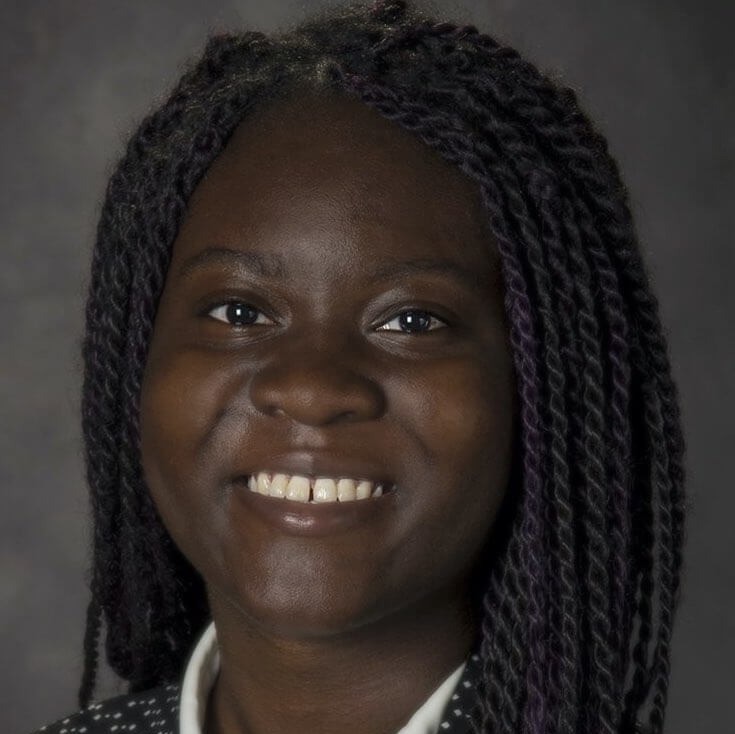What is your educational background?
I obtained a Bachelor’s in Biotechnology from the University of Houston in 2017, and I am currently a PhD candidate at the University of Texas MD Anderson UTHealth Graduate School of Biomedical Sciences.
What is your current occupation?
My current occupation is a research assistant at a lab at MD Anderson Cancer Center. My work revolves around studying basal epithelial stem cells in zebrafish. The current aim of my work is to apply the stem cell behavior I observe to cancer cells.
What or who got you into STEM?
I’ve always enjoyed biology, and moving into a research career seemed like a natural fit. Additionally, surrounding myself with incredible mentors who have helped guide my career has made a tremendous difference.
What is the biggest challenge/barrier you have faced as an African in STEM?
As an African in STEM, it’s been quite difficult finding African female role models to look up to. Additionally, trying to form bridges between myself and scientists on the continent has been a challenge.
How do you think your background/upbringing has been beneficial in your journey/career?
My background has made me someone who appreciates diversity of thought and experience. These qualities have enabled me to be someone who enjoys connecting with people of all walks of life, and better able to see the potential in all people. Additionally, my upbringing has made me someone who is open to collaborations, and being as inclusive as possible. My experiences have taught me that regardless of how someone was brought up, or their failures, there’s always redemption and a chance to improve our lives and that of those around us.
How do you think we can start to change the narrative surrounding African contributions
to global STEM research & careers?
This narrative can be changed by providing Africans in STEM with the resources to contribute to research that directly influences the quality of life of Africans, along with providing less barriers for Africans to share their findings with the global research community.
What advice would you like to give to young, aspiring Africans in STEM?
Keep your eyes open for opportunities, do not be afraid to reach out to people who are in fields that interest you, and be mindful of how you market yourself.





